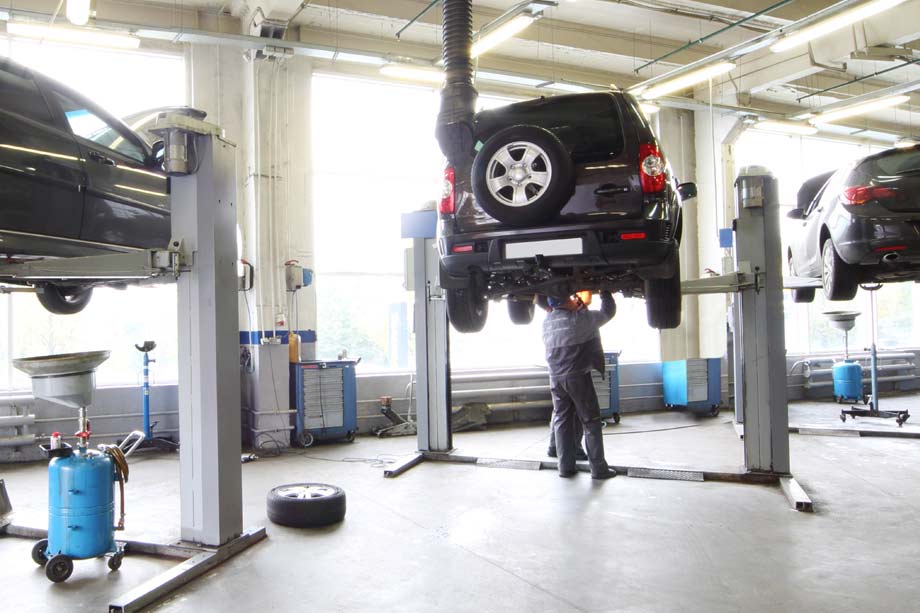All Categories
Featured
When it comes to automobile maintenance, tires are frequently forgotten, despite being an essential consider both safety and security and performance. Picking the right collection of tires can make a considerable difference in your driving experience, especially in terms of handling, fuel efficiency, and roadway safety. Comprehending how to choose the appropriate tires for your lorry requires understanding your driving problems, efficiency requirements, and the numerous tire options readily available. Right here's an extensive guide to assist you make the right option.
![]()
All-Season Tires: These are the most common type, made for a selection of driving conditions, including wet and completely dry roadways. They supply a balanced efficiency, making them an excellent selection for everyday driving in regions with modest climates.
Summer Season Tires: Suitable for warmer climates, summer tires give excellent efficiency on completely dry and damp roadways, supplying premium grip and handling. Nevertheless, they are not suitable for snowy or icy problems.
Winter Season Tires: Wintertime tires are specifically created to take care of snow, ice, and freezing temperatures. Made from an unique rubber substance that stays flexible in cool weather, they include deep footsteps that grasp the road, giving much better control and safety and security in winter season problems.
Performance Tires: For those driving cars or trying to find enhanced handling, efficiency tires use better responsiveness, collaring capacities, and improved traction. These tires focus on efficiency yet might compromise convenience and durability.
225: The size of the tire in millimeters. 50: The aspect ratio, or the height of the sidewall as a portion of the tire's width. R: Radial construction, which is one of the most usual layout for modern tires. 17: The diameter of the tire in inches, matching the dimension of the wheel. When changing your tires, it's typically best to match the initial size for your automobile to maintain the intended equilibrium of security, convenience, and handling. Altering tire dimensions can affect efficiency, including speedometer accuracy and fuel performance.
![]()
Urban and City Driving: If a lot of your driving occurs on well-paved city roads, all-season tires are generally the most effective alternative. They give adequate hold and convenience in moderate conditions, with a concentrate on efficiency.
Highway Driving: For frequent highway motorists, tires that use durable durability and reduced road noise, such as exploring tires, are ideal. These tires offer a smooth adventure and are optimized for gas efficiency over fars away.
Off-Road Driving: If you drive an SUV or vehicle and frequently venture off the beaten path, you'll need tires developed for sturdy terrain. All-terrain or mud-terrain tires provide much better grip and durability for driving on crushed rock, mud, or unpaved roadways.
Balanced Footstep: Most all-season tires include an in proportion step pattern, which provides a well balanced efficiency for normal driving conditions. It's ideal for dry roadways, as well as modest wet conditions.
Asymmetrical Tread: These tires have various step patterns on the inside and outdoors, enhancing cornering and stability. They use a much better hold on both dry and damp roadways, making them a prominent choice for efficiency cars.
Directional Tread: Made with a V-shaped pattern, these tires succeed at directing water far from the step. They give far better grip in snowy and wet problems, decreasing the danger of hydroplaning.
Checking Tire Pressure: Underinflated tires can adversely affect handling and gas effectiveness, while overinflated tires can enhance the threat of blowouts. Check the tire stress frequently and guarantee it fulfills the producer's specifications.
Tire Turning: To ensure also put on, tires must be rotated every 6,000 to 8,000 miles. Irregular wear can create early tire failing and affect your vehicle's positioning and handling.
![]()
Wheel Alignment: Misalignment can create your tires to put on erratically and negatively impact your car's handling. Have your lorry's alignment inspected regularly, particularly if you see pulling to one side.
Final thought. Whether you require all-season tires for day-to-day driving, winter tires for snowy conditions, or performance tires for far better handling, recognizing your needs is key to making the right option. Routine tire maintenance is likewise crucial for keeping your tires in optimal condition.

- Comprehending Tire Kinds. The primary step in selecting the best tire is comprehending the various kinds and their functions. Each kind of tire is engineered for certain conditions, so knowing which one fits your requirements is vital.
All-Season Tires: These are the most common type, made for a selection of driving conditions, including wet and completely dry roadways. They supply a balanced efficiency, making them an excellent selection for everyday driving in regions with modest climates.
Summer Season Tires: Suitable for warmer climates, summer tires give excellent efficiency on completely dry and damp roadways, supplying premium grip and handling. Nevertheless, they are not suitable for snowy or icy problems.
Winter Season Tires: Wintertime tires are specifically created to take care of snow, ice, and freezing temperatures. Made from an unique rubber substance that stays flexible in cool weather, they include deep footsteps that grasp the road, giving much better control and safety and security in winter season problems.
Performance Tires: For those driving cars or trying to find enhanced handling, efficiency tires use better responsiveness, collaring capacities, and improved traction. These tires focus on efficiency yet might compromise convenience and durability.
- Tire Size Issues. When selecting brand-new tires, tire dimension is one of the most important elements to consider. Tire dimension is suggested by a collection of numbers published on the sidewall, such as "225/50R17." Below's just how to review them:
225: The size of the tire in millimeters. 50: The aspect ratio, or the height of the sidewall as a portion of the tire's width. R: Radial construction, which is one of the most usual layout for modern tires. 17: The diameter of the tire in inches, matching the dimension of the wheel. When changing your tires, it's typically best to match the initial size for your automobile to maintain the intended equilibrium of security, convenience, and handling. Altering tire dimensions can affect efficiency, including speedometer accuracy and fuel performance.
- Driving Problems and Tire Performance. Where you drive and just how you drive plays a significant duty in identifying the appropriate tire for your lorry. Here's what to think about based on your driving practices:

Urban and City Driving: If a lot of your driving occurs on well-paved city roads, all-season tires are generally the most effective alternative. They give adequate hold and convenience in moderate conditions, with a concentrate on efficiency.
Highway Driving: For frequent highway motorists, tires that use durable durability and reduced road noise, such as exploring tires, are ideal. These tires offer a smooth adventure and are optimized for gas efficiency over fars away.
Off-Road Driving: If you drive an SUV or vehicle and frequently venture off the beaten path, you'll need tires developed for sturdy terrain. All-terrain or mud-terrain tires provide much better grip and durability for driving on crushed rock, mud, or unpaved roadways.
- Tire Tread Patterns. Tire walk patterns affect just how your automobile grasps the roadway, specifically in damp or slippery conditions. Comprehending tread style is key to guaranteeing safe handling:
Balanced Footstep: Most all-season tires include an in proportion step pattern, which provides a well balanced efficiency for normal driving conditions. It's ideal for dry roadways, as well as modest wet conditions.
Asymmetrical Tread: These tires have various step patterns on the inside and outdoors, enhancing cornering and stability. They use a much better hold on both dry and damp roadways, making them a prominent choice for efficiency cars.
Directional Tread: Made with a V-shaped pattern, these tires succeed at directing water far from the step. They give far better grip in snowy and wet problems, decreasing the danger of hydroplaning.
- Tire Upkeep for Long Life. It's critical to keep them properly to prolong their lifespan and make sure ongoing performance when you've chosen the ideal tires. Routine tire upkeep includes:
Checking Tire Pressure: Underinflated tires can adversely affect handling and gas effectiveness, while overinflated tires can enhance the threat of blowouts. Check the tire stress frequently and guarantee it fulfills the producer's specifications.
Tire Turning: To ensure also put on, tires must be rotated every 6,000 to 8,000 miles. Irregular wear can create early tire failing and affect your vehicle's positioning and handling.

Wheel Alignment: Misalignment can create your tires to put on erratically and negatively impact your car's handling. Have your lorry's alignment inspected regularly, particularly if you see pulling to one side.
- Speak with an Expert. While you may have a general understanding of the sorts of tires available, it's constantly a good idea to seek advice from a tire professional. They can give expert guidance based on your specific vehicle version, driving conditions, and performance demands.
Final thought. Whether you require all-season tires for day-to-day driving, winter tires for snowy conditions, or performance tires for far better handling, recognizing your needs is key to making the right option. Routine tire maintenance is likewise crucial for keeping your tires in optimal condition.
Latest Posts
Elegant Convenience Starts from the Ground Up
Published Apr 20, 25
1 min read
Uncover the Montclare Expertise - Reliable Auto Service
Published Apr 19, 25
2 min read
Get to Know the Certified Mechanics Behind Montclare Auto Repair - Here to Serve You
Published Apr 19, 25
2 min read
More
Latest Posts
Elegant Convenience Starts from the Ground Up
Published Apr 20, 25
1 min read
Uncover the Montclare Expertise - Reliable Auto Service
Published Apr 19, 25
2 min read
Get to Know the Certified Mechanics Behind Montclare Auto Repair - Here to Serve You
Published Apr 19, 25
2 min read